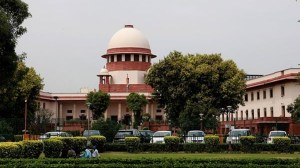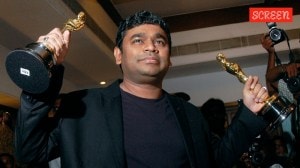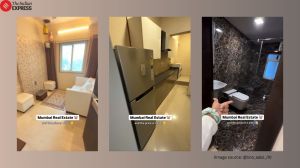Stay updated with the latest - Click here to follow us on Instagram
Join the Tea party
While coffee chains continue to reign supreme in India’s beverage market, a number of new tea cafes hope to cash in on the health movement.
 The Orange Spice black tea at Tea Trails
The Orange Spice black tea at Tea Trails
By: Shikha Kumar
At Tea Trails, the art of making and serving tea is serious business. Housed in the outdoor section of a plush building in Bandra Kurla Complex, Mumbai’s newest tea cafe hopes to trigger a transition in a nation currently obsessed with coffee from ubiquitous chains.
As servers at the cafe lay trays with pots of steaming tea and plates of food, a sand timer is delicately placed alongside. “There’s a science behind a perfect cup of tea — the flavour depends on the amount of water, the tea leaves and their brewing. At Tea Trails, while bringing certain teas to the patrons, our servers instruct them on how long to let the tea brew, with the help of the sand timer,” says Kavita Mathur, the cafe’s co-owner. She has travelled to Darjeeling, Hong Kong, China and also the World Tea Expo in Las Vegas, to study teas. “If San Francisco has 15 tea lounges, why not India, which is primarily a tea-drinking nation?” says Mathur.
At the moment, Mathur finds both support and competition in several entrepreneurs across the city who are looking to tap the great potential of teas in the Indian beverage market. Take for instance, Gaurang Vora, who believes that herbal and green teas are the best beverage for Mumbaikars given their stress levels and work patterns. The restaurateur recently launched Tea & Tea in Juhu. Then there’s Ankit Gupta who has introduced a tea “bar” in his latest venture, Burma Burma. At the south Mumbai restaurant that serves authentic Burmese vegetarian food, an exotic-looking bar displays 20 varieties of tea and Oriental cutlery with kettles, cups and thatched containers. “When I was working as the beverage manager at the Taj Mahal Palace a few years ago, I was exposed to a variety of teas. When the idea for Burma Burma came about, I thought the best way to introduce teas is to combine them with food,” says Gupta. Every table at his restaurant has a pot of tea.
India, however, isn’t new to the concept of tea lounges. Back in 1988, India’s first “auctioneer-cum-tea taster” Dolly Roy introduced the residents of Kolkata to Dolly’s The Tea Shop, where she serves 55 kinds of hot and cold tea even today. Apart from the iconic Tea Centre at Churchgate, Mumbai has two branches of the Wagh Bakri Tea Lounge. These tea houses, which have expanded to Delhi and Aurangabad, were started with the intention of uplifting the image of the drink consumed by millions every day.
While these landmark tea houses focus on serving a humble cuppa, the newer ventures are looking to please a discerning palate and introduce consumers to exotic teas, while educating them about its health benefits. So, apart from classics such as English Breakfast, Earl Grey and Darjeeling Namring, the menu at Tea Trails boasts nearly 40 teas, including flavoured blacks and greens, the medicinal Silver Needle white tea and international ones such as Japanese Sencha, Turkish Black and Fruity Ceylon, which are milk-less teas. “Tea is healthier than coffee. For the ones who are more health-conscious, we have the tisanes (caffeine-free teas),” says Mathur, while pouring a cup of the Turkish Red Apple tisane, a concoction that contains no tea leaves, only brewed and dehydrated apple pieces that lend a naturally sweet flavour to the beverage.
“We want to bring the tea-making experience to your table, replete with the right teaware. For instance, the Mango Mate (a popular South American infusion) is served in a cuia, a container made out of bottle gourd. We also serve sunflower seeds and cookies along with the teas,” says Gupta. The ingredients for the teas at Burma Burma are sourced from their places of origin, such as Northeast India, China, Thailand and South Africa.
But bringing about the tea revolution may not be easy, says Gaurav Taria, who is the third generation in a family of tea manufacturers. “Tea is not considered a premium beverage in a consumer’s mind and they are averse to loosening their purse-strings for it,” he says. But, his tea cafe Infinitea in Bangalore, which started in 2003, has been a success, and he hopes to expand to a few more cities in south India.
Devangshu Dutta, the Chief Executive of retail consultancy firm Third Eyesight, believes that an increase in consumer spending power holds a lot of potential for the success of tea cafes. “There are lessons to be learnt from India’s coffee chain revolution, how the drink became associated with a cool, global lifestyle,” says Dutta.







